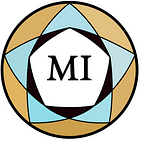What is Cancer?
By Shahd Nooh
Highlights:
- Definition of cancer
- Causes of cancer
- Gene mutations
Introduction
Cancer is a genetic disease that results from the mutation of cells .These mutations and genetic changes are influenced by the inherited genes from parents. Moreover, other environmental factors like smoking, pollution, radiation and exposure to carcinogenic substances promote cancer.
Causes of Cancer
There are numerous types of DNA alterations. Some modifications only affect a single nucleotide, which is a unit of DNA. It’s possible that one nucleotide is replaced by another, or that it’s completely missing. Rearrangements, deletions, and duplications of lengthy regions of DNA are examples of other modifications involving bigger spans of DNA. These mutations are tested by scientists by DNA sequencing tests.
Gene mutations
The genetic mutations that promote cancer usually target three types of genes which are proto-oncogenes, tumor suppressor genes and DNA repair genes. Proto-oncogenes are a collection of common genes found in cells. They carry the required information for your body to produce the proteins that are responsible for promoting cell division which allows for cell growth. However, when these genes are mutated in specific ways or become more active than usual, they can turn into oncogenes, allowing cells to grow and survive when they should not.
Tumor suppressor genes work on the opposite end of the cell growth regulation spectrum, inhibiting cell proliferation and tumor growth. Certain mutations in tumor suppressor genes can cause cells to divide uncontrollably.
Finally, DNA repair processes are necessary for the integrity of the genome to be maintained. As a result, dysregulation of repair genes is likely to be linked to serious health consequences, such as an increase in the occurrence of birth abnormalities, an increased risk of cancer, and an accelerated pace of ageing. Cells with mutations in these genes are more likely to generate mutations in other genes and chromosome alterations, such as chromosome duplications and deletions.
Conclusion
In conclusion, cancer diseases are caused by genetic changes or environmental factors that promote genetic changes in proto-oncogenes, tumor suppressor genes and DNA repair genes. The mutations in these genes together drive the cells to become cancerous.
References
https://www.jstor.org/stable/24993349
